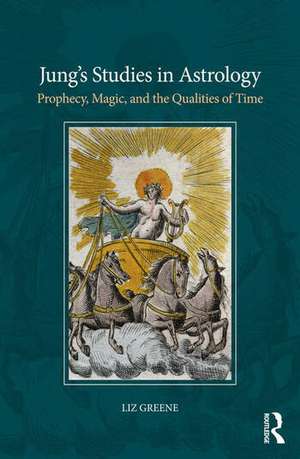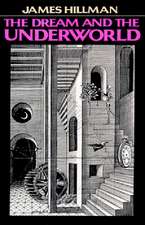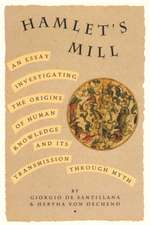Jung’s Studies in Astrology: Prophecy, Magic, and the Qualities of Time
Autor Liz Greeneen Limba Engleză Paperback – 21 feb 2018
C. G. Jung had a profound interest in and involvement with astrology, which he made clear in virtually every volume of the Collected Works, as well as in many of his letters. This ancient symbolic system was of primary importance in his understanding of the nature of time, the archetypes, synchronicity, and human fate.
Jung's Studies in Astrology is an historical survey of his astrological work from the time he began to study the subject. It is based not only on his published writings, but also on the correspondence and documents found in his private archives, many of which have never previously seen the light of day. Liz Greene addresses with thoroughness and detailed scholarship the nature of Jung's involvement with astrology: the ancient, medieval, and modern sources he drew on, the individuals from whom he learned, his ideas about how and why it worked, its religious and philosophical implications, and its applications in the treatment of his patients as well as in his own self-understanding. Greene clearly demonstrates that any serious effort to understand the development of Jung's psychological theories, as well as the nature of his world-view, needs to involve a thorough exploration of his astrological work.
This thorough investigation of a central theme in Jung's work will appeal to analytical psychologists and Jungian psychotherapists, students and academics of Jungian and post-Jungian theory, the history of psychology, archetypal thought, mythology and folklore, the history of New Age movements, esotericism, and psychological astrology.
| Toate formatele și edițiile | Preț | Express |
|---|---|---|
| Paperback (1) | 273.91 lei 3-5 săpt. | +19.89 lei 6-12 zile |
| Taylor & Francis – 21 feb 2018 | 273.91 lei 3-5 săpt. | +19.89 lei 6-12 zile |
| Hardback (1) | 815.25 lei 6-8 săpt. | |
| Taylor & Francis – 21 feb 2018 | 815.25 lei 6-8 săpt. |
Preț: 273.91 lei
Preț vechi: 288.33 lei
-5% Nou
52.42€ • 54.66$ • 43.56£
Carte disponibilă
Livrare economică 28 februarie-14 martie
Livrare express 13-19 februarie pentru 29.88 lei
Specificații
ISBN-10: 1138289124
Pagini: 244
Ilustrații: 6 Halftones, color; 17 Halftones, black and white; 6 Illustrations, color; 17 Illustrations, black and white
Dimensiuni: 156 x 234 x 17 mm
Greutate: 0.41 kg
Ediția:1
Editura: Taylor & Francis
Colecția Routledge
Locul publicării:Oxford, United Kingdom
Public țintă
Postgraduate and ProfessionalCuprins
NOTE ON REFERENCES
FOREWORD BY SONU SHAMDASANI
LIST OF IMAGES
Introduction: The Pursuit of ‘Wretched Subjects’
Chapter One - Jung’s Understanding of Astrology
Chapter Two - Jung’s Astrologers
Chapter Three - Active Imagination and Theurgy
Chapter Four - Summoning the Daimon
Chapter Five - The ‘Great Fate’
Chapter Six - ‘The Way of What Is to Come’
Conclusion
Notes and Bibliography
Notă biografică
Recenzii
"This is a work which I have been searching for in vain for several decades […] it manages to be an instructive and essential reading in its own right, while resituating and correcting a host of other works." --Sonu Shamdasani, Professor, School of European Languages, Culture & Society, UCL
Descriere
Winner of the IAJS award for best authored book of 2018!
C. G. Jung had a profound interest in and involvement with astrology, which he made clear in virtually every volume of the Collected Works, as well as in many of his letters. This ancient symbolic system was of primary importance in his understanding of the nature of time, the archetypes, synchronicity, and human fate.
Jung's Studies in Astrology is an historical survey of his astrological work from the time he began to study the subject. It is based not only on his published writings, but also on the correspondence and documents found in his private archives, many of which have never previously seen the light of day. Liz Greene addresses with thoroughness and detailed scholarship the nature of Jung's involvement with astrology: the ancient, medieval, and modern sources he drew on, the individuals from whom he learned, his ideas about how and why it worked, its religious and philosophical implications, and its applications in the treatment of his patients as well as in his own self-understanding. Greene clearly demonstrates that any serious effort to understand the development of Jung's psychological theories, as well as the nature of his world-view, needs to involve a thorough exploration of his astrological work.
This thorough investigation of a central theme in Jung's work will appeal to analytical psychologists and Jungian psychotherapists, students and academics of Jungian and post-Jungian theory, the history of psychology, archetypal thought, mythology and folklore, the history of New Age movements, esotericism, and psychological astrology.



